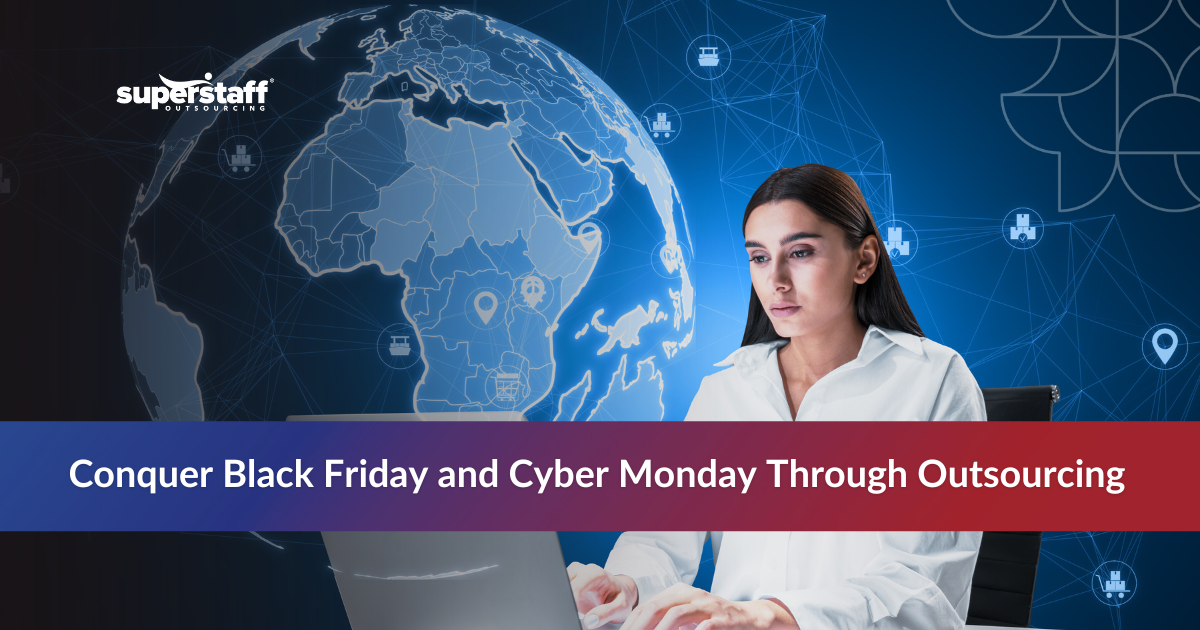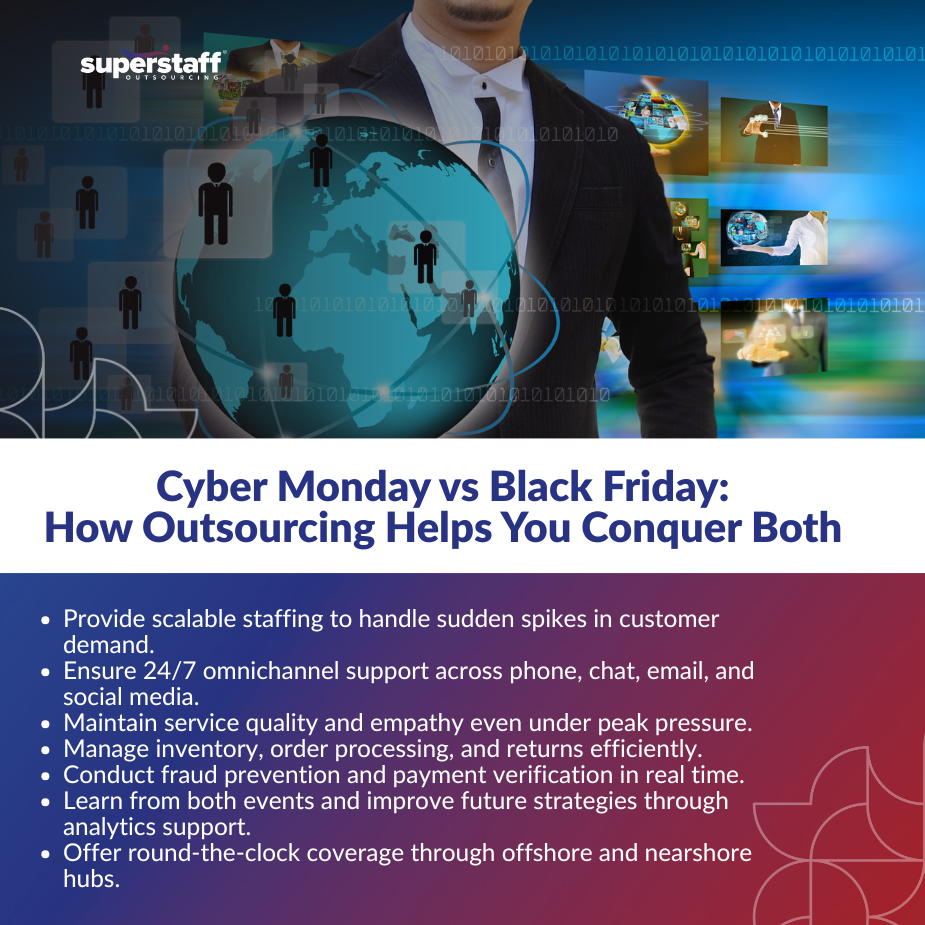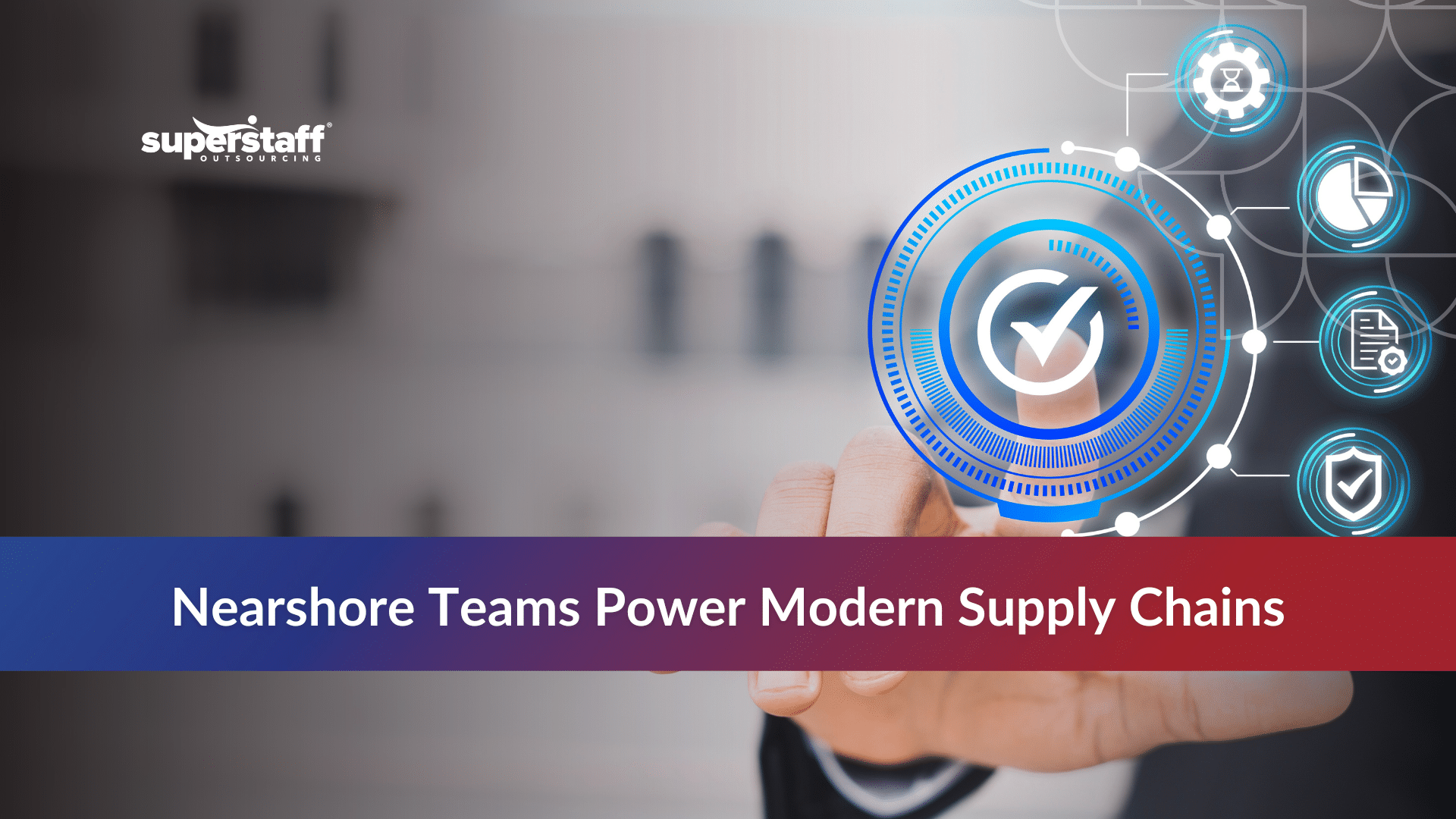
Do you understand the differences between Cyber Monday vs Black Friday? These two retail holidays may share the same goal—massive sales—but their dynamics, customer expectations, and operational challenges differ greatly. While Black Friday revolves around in-store and hybrid retail experiences, Cyber Monday dominates the online space, pushing digital infrastructure and customer service to their limits.
This blog explores the key distinctions between the two major shopping events and explains how partnering with a skilled BPO provider ensures operational efficiency, scalability, and customer satisfaction during both. The goal is simple: to show how outsourcing helps retailers handle peak demand seamlessly across these two defining moments of the retail calendar.
Black Friday—The Traditional Retail Rush That Tests Speed, Supply, and Staff Stamina
Every year, millions of shoppers line up before dawn to seize Black Friday deals. While e-commerce participation has grown, the in-store shopping rush remains a core part of the event’s identity. For businesses, this means dealing with surging crowds, tight inventory management, and immense pressure on customer service teams.
Black Friday doesn’t just test sales teams; it challenges every part of an organization’s operational infrastructure. Foot traffic spikes create bottlenecks in checkout lines, inventory updates lag between physical and online systems, and customer service agents face nonstop inquiries about product availability and delivery timelines.
Customer service agents play a crucial role in managing real-time store updates and order tracking, ensuring that the shopping frenzy doesn’t spiral into confusion. Back-office teams, meanwhile, work behind the scenes to maintain accurate inventory levels and smooth payment processing—essential for avoiding stockouts and double charges.
In this environment, Cyber Monday vs Black Friday becomes a comparison of immediacy versus continuity.
Here is the core difference between Black Friday and Cyber Monday: While Black Friday is a sprint, Cyber Monday is a marathon of digital demand. As shoppers move online, the battlefield shifts to digital channels—where Cyber Monday reigns.
Cyber Monday—The E-Commerce Event That Challenges Tech Resilience and Digital Customer Engagement
Cyber Monday emerged as the digital counterpart to Black Friday, built for the era of online convenience. Unlike its brick-and-mortar predecessor, Cyber Monday pushes websites, servers, and digital customer service systems to their limits.
The distinction between Cyber Monday vs Black Friday becomes clear in how each event tests a brand’s resilience. While Black Friday strains in-person operations, Cyber Monday challenges digital infrastructure. A single second of website lag or payment error can cause hundreds of lost sales. That’s why tech readiness, automation, and human support all need to function in perfect sync.
Customer service inquiries shift from in-store questions to online troubleshooting. Chat and email support surge due to high online traffic, and shoppers expect immediate answers—regardless of time zone. The increased demand for 24/7 support puts pressure on businesses to maintain round-the-clock operations.
Here, outsourcing becomes a strategic move. Offshore or nearshore BPOs can provide 24/7 coverage across multiple time zones, ensuring customer queries are handled in real time without exhausting internal teams. With both events occurring back-to-back, brands need more than speed—they need operational synergy that only a well-structured outsourcing partnership can provide.

Why Businesses Can’t Treat Black Friday and Cyber Monday as Identical Challenges
Despite happening within days of each other, Cyber Monday vs Black Friday require distinct strategies. Businesses that treat them as one and the same often struggle to meet customer expectations.
Black Friday appeals to impulsive, in-person buyers—customers driven by excitement, limited-time offers, and the physical experience of shopping. These shoppers demand quick answers and immediate gratification. In contrast, Cyber Monday attracts research-driven, deal-focused online buyers who take time to compare options, read reviews, and expect seamless checkout experiences.
The two events also differ in timelines. Black Friday sales may begin early in the morning and last throughout the weekend, while Cyber Monday often extends into an entire “Cyber Week.” This longer cycle calls for sustained staffing, consistent digital support, and stable back-end systems.
Retailers need agile structures that can adapt in real time. This duality of impulse versus strategy, physical versus digital, and immediacy versus endurance requires different operational responses—and outsourcing offers the flexibility to balance both efficiently.
The Real Challenge—Balancing Efficiency and Empathy Under Pressure
At the heart of the Cyber Monday vs Black Friday challenge lies one unchanging truth: customer emotions run high. From long checkout lines to delayed shipments, these events put even loyal customers on edge. Managing both efficiency and empathy becomes the true differentiator between brands that retain customers and those that lose them.
Training agents to handle high-pressure interactions calmly is crucial. When shoppers are frustrated about sold-out items or failed payments, they need reassurance—not robotic replies. Skilled BPO agents excel in defusing tense situations while maintaining professionalism and empathy.
Equally important is consistency. Brands must ensure that tone and quality remain aligned across all channels—whether through phone calls, live chat, or email. This consistency is not easy to achieve internally, especially during high-volume seasons, but experienced BPO partners have the systems and quality assurance mechanisms to make it happen seamlessly.
This is where BPO support solutions for holiday retail peak seasons become a brand’s strongest ally. They help businesses strike the perfect balance between speed, empathy, and accuracy—ensuring that every interaction, even under pressure, strengthens customer trust.
How a BPO Partner Ensures Smooth Customer Operations During Both Events
A trusted BPO partner provides more than extra hands—they deliver structure, scalability, and skill when brands need them most. During Cyber Monday vs Black Friday, outsourcing teams work as an operational backbone that supports every customer touchpoint.
Flexible staffing models allow retailers to expand or contract their workforce depending on peak demand. During the Black Friday weekend, for example, staffing might double to manage spikes in phone and chat volume. Once Cyber Monday tapers off, the team can scale down efficiently—helping brands control costs without compromising service.
Omnichannel support is another vital advantage. Whether customers reach out via chat, email, phone, or social media, BPOs ensure consistency and responsiveness. With advanced monitoring systems, they maintain quality control and compliance standards in real time.
BPOs also help brands collect insights from customer interactions, identifying recurring issues, sentiment patterns, and opportunities for improvement. These insights can guide future campaigns and refine strategies for next year’s holiday rush.
Beyond customer service, BPOs strengthen the operational backbone that powers sales—handling back-office tasks that make high-volume transactions possible.
Back-Office Outsourcing—The Invisible Engine Behind Successful Holiday Sales
Behind every seamless Black Friday checkout or Cyber Monday confirmation email lies a network of back-office processes working quietly but efficiently.
Back-office outsourcing ensures that every operational component—from inventory tracking to refund management—runs smoothly. It’s the silent force that prevents chaos when thousands of transactions occur simultaneously.
For Cyber Monday vs Black Friday, back-office teams manage order verification and fraud prevention, safeguarding both customer trust and brand reputation. During peak seasons, fraud attempts surge, making real-time verification critical. Outsourced specialists use both manual review and AI-powered tools to validate orders and detect anomalies.
Logistics coordination and return management are also essential. With increased order volumes come higher rates of returns. BPOs help manage these workflows efficiently—updating inventory systems, processing returns, and ensuring customers receive quick resolutions.
Finally, data analytics closes the loop. Post-event insights reveal what worked, what didn’t, and how to prepare better next time. Outsourced analysts can compile and interpret these findings to inform marketing, logistics, and staffing decisions for future events.
Together, these capabilities turn seasonal chaos into sustainable growth—helping brands not only survive but thrive during both Black Friday and Cyber Monday.
The Advantage of Working With a BPO Partner Experienced in Retail and E-Commerce
Not all outsourcing providers are equipped for retail’s high-stakes sales events. The best BPO partners bring specialized knowledge and tools designed for e-commerce environments.
They understand consumer behavior during Cyber Monday vs Black Friday, anticipate common bottlenecks, and deploy proactive measures. Their familiarity with omnichannel platforms and CRM systems allows for seamless integration across customer touchpoints.
BPO teams also excel in cross-department collaboration. Customer service agents, back-office processors, and IT support work in harmony, ensuring no process breaks down during heavy traffic periods. This coordination helps brands protect their reputation and maintain consistent experiences across all sales channels.
A seasoned BPO partner can help retailers come up with effective Black Friday and Cyber Monday marketing strategies, plan their workforce months in advance, optimize schedules, and implement playbooks for various demand scenarios. That foresight transforms what would otherwise be reactive management into a well-orchestrated performance.
With this foundation, brands can elevate both customer experience and profit margins—turning high-stress holiday events into brand-building opportunities.
Philippine and Colombian BPOs—Global Talent That Powers Local Success
For many retailers, the success of Cyber Monday vs Black Friday campaigns depends on reliable 24/7 customer support. This is where nearshore and offshore BPO hubs like the Philippines and Colombia come in.
The Philippines is renowned for its world-class customer service culture, empathy-driven communication, and scalability. Filipino agents are highly trained to handle peak periods while maintaining composure and warmth—a combination that keeps customers loyal even during stressful sales events.
Colombia, on the other hand, offers nearshore advantages such as time zone alignment with the U.S., bilingual fluency, and cultural familiarity. This makes Colombian BPOs ideal for real-time engagement during Cyber Monday’s online rush or for managing late-night customer inquiries post-Black Friday.
Together, these outsourcing destinations deliver unbeatable coverage, multilingual support, and proven track records in managing large-scale e-commerce operations. Their flexible teams can handle sudden surges in customer queries, ensuring brands stay responsive and reliable across continents.
Outsourcing is not just about cost savings—it’s about sustainable scalability and ensuring consistent, high-quality service during the most critical retail moments of the year.
Transforming Holiday Peaks Into Year-Round Opportunities
The lessons learned from Cyber Monday vs Black Friday extend far beyond seasonal sales. The data, customer feedback, and performance insights gathered during these periods can drive meaningful year-round improvements.
Post-event analytics help brands forecast demand more accurately, refine pricing strategies, and enhance marketing personalization. BPO partners equipped with analytics teams can translate raw data into actionable intelligence, revealing which customer touchpoints delivered the most conversions or satisfaction.
Continuous training ensures that agents evolve with every event. After each holiday season, top-performing BPOs conduct refresher sessions, integrating real-world learnings into their workflows. This approach strengthens the relationship between the outsourcing partner and the client, fostering a cycle of improvement that benefits future campaigns.
Integrating these insights into long-term strategies turns seasonal shoppers into loyal customers. Brands that successfully manage Cyber Monday vs Black Friday with the help of an expert BPO often discover lasting gains in retention, reputation, and revenue.
Ultimately, success during these two major events reflects how prepared a brand is to scale confidently in an increasingly competitive retail world.
Thinking About Cyber Monday vs Black Friday? Optimize Your Approach for Both Retail Holidays With SuperStaff!
Understanding the nuances between Black Friday and Cyber Monday is key—but thriving in both requires the right operational strategy and trusted outsourcing partner. Each event has distinct demands, and only businesses that prepare with flexibility, empathy, and data-driven planning can deliver exceptional experiences across both.
BPOs bridge human expertise, scalability, and system efficiency—helping brands turn holiday chaos into competitive advantage. From real-time customer support to back-office precision, outsourcing transforms seasonal spikes into opportunities for growth.
Partner with SuperStaff to handle your next peak season with confidence, agility, and unmatched customer care.
Whether your goal is to master Cyber Monday, Black Friday, or both, our team is ready to help your brand conquer every shopping rush, and keep customers coming back long after the holidays end.






